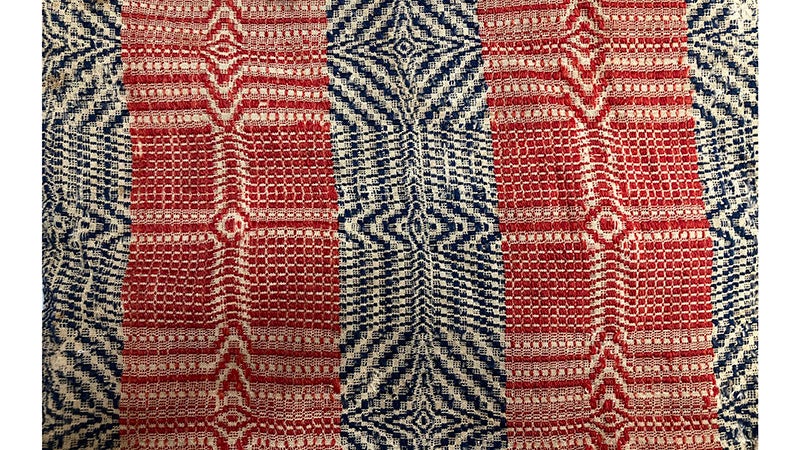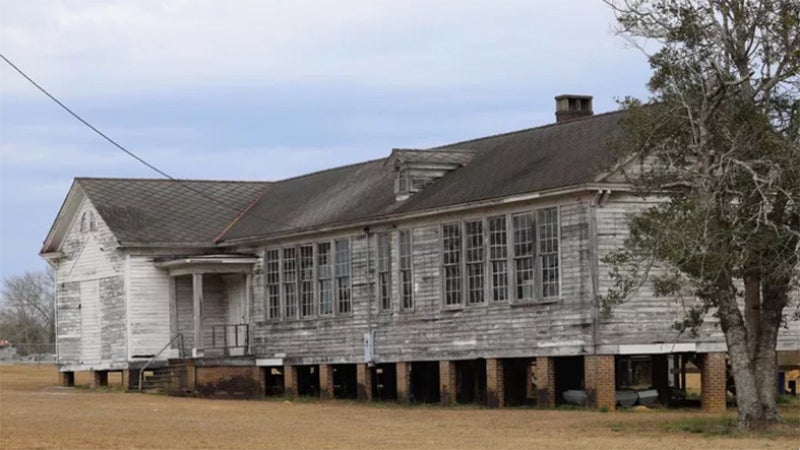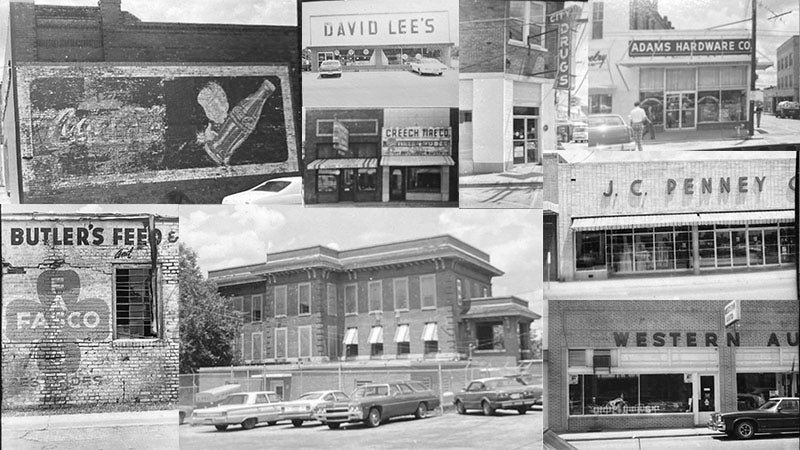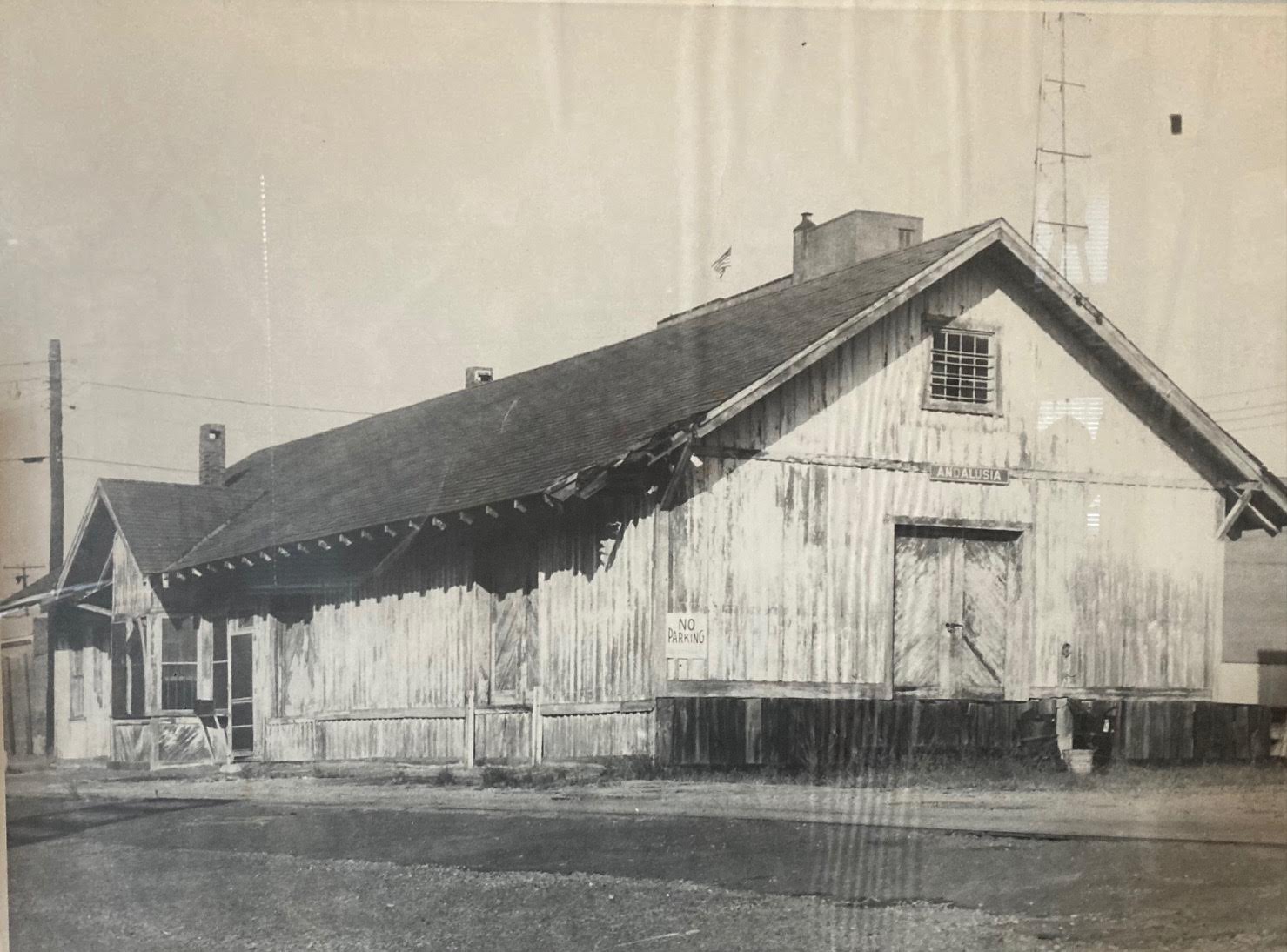Remember when: Postcards offer glimpse of past
Published 3:08 am Saturday, October 8, 2016
“WOMENFOLK” was a folk song from the 1960s sung by a folk singing group of young baby-boomer ladies called the Womenfolk on their album recorded live at the Hungry I Café in New York City. Pretty feisty were the words to this song which surrounded the women’s independence and liberation movement, the trend of that era.
“The first man created was woman, then Eve from his rib was designed. Since then man’s made woman his backbone. All over the world you’ll find Womenfolk, Womenfolk, tending the sows; Womenfolk, Womenfolk milking the cows; Womenfolk, Womenfolk, pushing the plows.”
“A woman is meant to be courted, So gallantly on bended knee. And after the courting is over, In every man’s home you’ll find Womenfolk, Womenfolk, down on all four’s; Womenfolk, Womenfolk, scrubbing his floors; Womenfolk, Womenfolk, doing the chores…”
A short time ago the Three Notch Museum received a package in the mail which contained a treasure of items from the great granddaughter of a late prominent Andalusia resident Ellie Sentell (Mrs. George) Etheridge.(Etheridge operated the Consumer Ice Plant and Coca-Cola Co. after the death of his uncle and aunt, the Burnettes.)
Sharon Torrontor Wales, daughter of the late Katherine Broughton Torrontor, enclosed a note saying that she wished to donate and return these historical items to Andalusia for preserving. They included a number of old Andalusia postcards, photographs of old Andalusia scenes, garden club and study club yearbooks, some of these dating back as far as 1915.
Upon examining these fragile documents, it was confirmed to me that even 100 years ago, women in Andalusia were active in civic endeavors and were instrumental in promoting education, beautification, citizenship, the fine arts, and even politics.
On the national scene the 19th Amendment to the U. S. Constitution ratified on August 18, 1920 granted American women the right to vote, a right known as “women suffrage.” The 19th prohibited any U. S. citizen from being denied the right to vote on the basis of sex.
The women’s suffrage movement fought at both state and national levels to achieve the vote. Although the first gathering devoted to women’s rights in the U.S. was held in 1848 in Seneca Falls, New York, it was first introduced in Congress in 1878. Not until 1919, 41 years later, Congress approved the amendment and submitted it to the states for ratification. When the 36th state, Tennessee, ratified it in 1920, that state’s vote was the final vote needed to add the amendment to the constitution.
Found in the 1920-21 Study Club of Andalusia yearbook are these quotes, “The future destiny of the child is always the work of the mother,” (Napoleon) and “I taught him to obey.” (George Washington’s mother)
In the 1916-17 club yearbook, the monthly programs centered around women – “Women of Chivalrous Ideals,” “Women of the Bible,” “Self-Sacrificing Women,” “The Learned Lady,” “Pioneer Among Modern Women Authors,” and “Great Women Novelists.”
Mrs. Oscar Duggar spoke on Joan of Arc. Mrs. Henry Opp lectured on Cordelia in “King Lear” while Mrs. James Murphy led a discussion on Becky Sharp in “Vanity Fair.” Mrs. L. E. Broughton reviewed the character Fantine in “Les Miserables” followed by Miss Ethel Darling’s description on sculpture of Greek women of the heroic age. Mrs. George Etheridge presented remarks on “Godiva” by Tennyson. Mrs. T. A. Broughton chose as her presentation, “The Marys of the Bible.”
Other topics of the club women during that early period of the 20th century when women were becoming more independent included Queen Mary, Cleopatra, Lady McBeth, and Juliet.
Now about this time in Andalusia history, the early 1920’s, that is, the Andalusia Star, April 16, 1920 edition reads, “Paving of Andalusia city streets began this morning.” Then a few months later in the October 5, 1920 newspaper, “South Three Notch paving begins.” The September 24, 1920 edition reports “AHS will have a football team this season.”
By Feb. 15, 1924, the new fashion is news – “Skirts are short in spring style. They are also lower in the neck and sleeveless. Thin, bright colored hose are fashionable.” Though there was no mention of the hair styles, the new “bobbed” look with finger waves became popular and “beauty parlors” were the rage across America and in Andalusia.
Especially memorable to me is a modern day historical program given by the late Edwina Murphy known by all who loved her as “Win.” She knew some stories about one of the colorful female characters of Andalusia, Mrs. Hill Guy. This dear lady did a lot of benevolence for the children of the town. She also took baby gifts to new mothers. At her death, “Mrs. Addie Belle” bequeathed her house and lot on East Three Notch Street to the Methodist Church. I guess she earned the opportunity to say whatever she pleased when she became older and almost deaf since she told a deacon in her loudest voice as he passed the offering plate at First Methodist one Sunday, “(She called him by name), I hear you quit drinking!” He just nodded his head and smiled!
Mrs. Guy gave furnishings for the memorial room of the Covington County Hospital according to the December 10, 1926 edition of the Andalusia Star.
Win (Mrs. Ray) Murphy, another strong, productive, and determined Andalusia woman, originally from Thomasville, was known to drive around the “public” square backwards! Her attorney son Mark saw it all as he stood out on the sidewalk in front of his law office!
Barbara McCommons also entertained the historical society with tales of her late fellow Pilot Club member Ida Kate Head. It is remembered by her friends that “Mrs. Ida Kate” was the first woman to drive an automobile all the way to Opp by herself! She was on the way to Opp one day going over there to visit her sick mother and driving pretty fast. She was stopped by the law at which time she asked the officer, “How much is the ticket going to be?” He stated, “$10!” Without hesitation she replied, “Well, go ahead and write it for $20., because I am going to drive this car just as fast heading back to Andalusia as I am going to Opp!”
Probably not many are around that remember what happened when Covington County Sheriff Tom Head passed away. “Mrs. Ida Kate” was appointed to serve out his term. She was attending a party one evening when she was notified that a whiskey still had been discovered and her presence at that rural location was needed immediately. “Mrs. Ida Kate” wasted no time. She went out to the whiskey still raid dressed in her party clothes, her high heels and mink coat!
I wonder if that might have been the same whiskey still that gangster Al Capone’s men came to South Alabama to visit on numerous occasions purchasing the “best moonshine in Alabama.” It is said that they would ship barrels back by train to Chicago – true story! This was during “Prohibition” when there was a ban on the production, importation, transportation, and sale of alcoholic beverages that remained in place from 1920-1933.
An ad in the Andalusia Star in September 1920 appealing in its write-up to the mothers of the family featured these headlines, “Why I Want a Home of My Own.” Call McGowin Lumber Co. Phone 298.
Another newspaper ad of the day reads “MOTHER’S FRIEND – Experienced mothers know the wisdom of assisting nature before the baby’s coming. Used by expectant mothers for 3 generations.” OMG as they say on FB! There are just some times when I research these old newspapers at the Andalusia Public Library with the help of Linda Grimes Harrell, archivist, that I just don’t want to REMEMBER WHEN!





